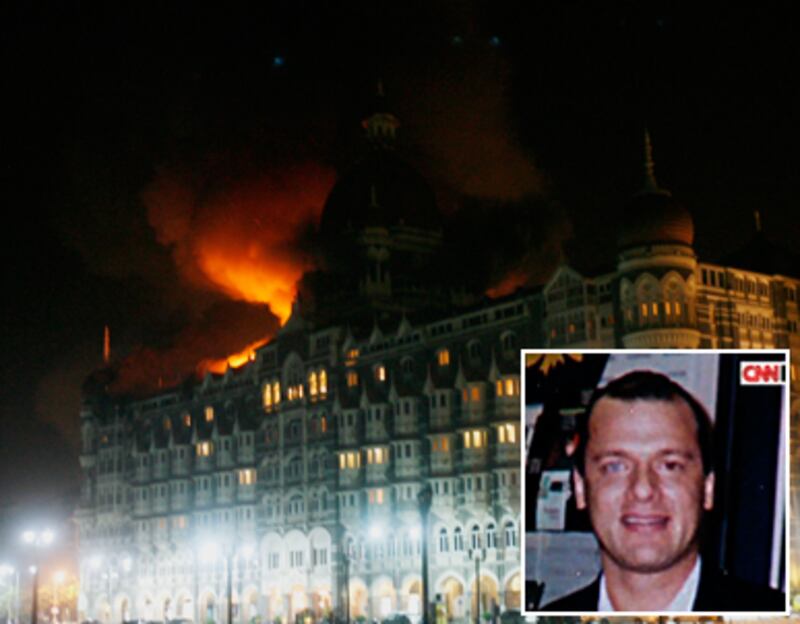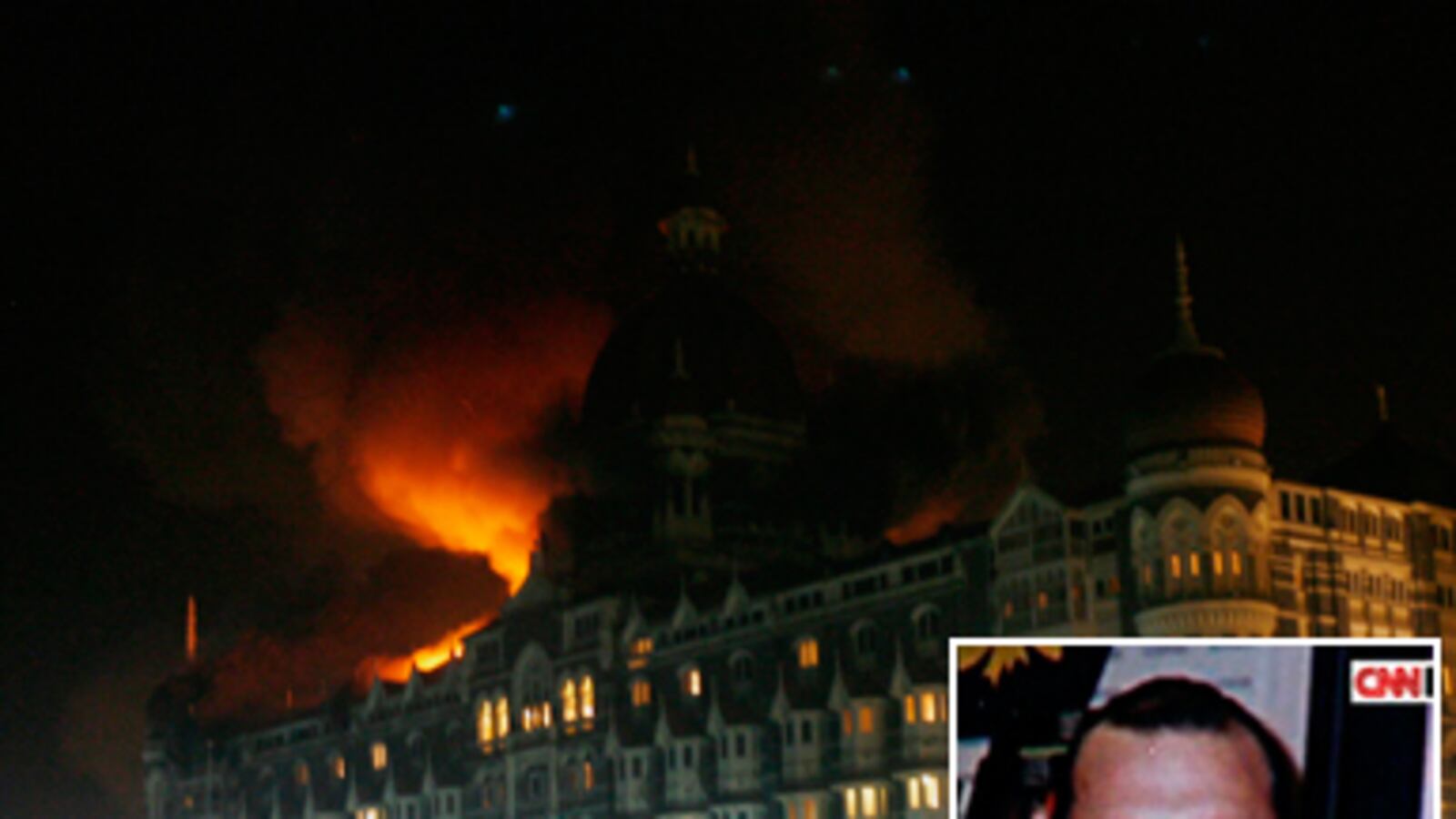America’s relationship with Pakistan, now revealed as the final home of Osama bin Laden, is about to be pushed even closer to the breaking point.
A terrorism trial set to open next week in Chicago is expected to feature testimony from a confessed Pakistani-American terrorist who will link the central Pakistani spy agency, the Inter-Services Intelligence Directorate, or ISI, to the planning of the 2008 terrorist siege of Mumbai, India’s largest city, in which 170 people were killed, including six Americans.

Lawyers and law-enforcement officials involved in the case tell The Daily Beast that trial testimony will suggest that the ISI has sheltered terrorist leaders on Pakistani soil—possibility including bin Laden, who hid out down the road from the homes of senior ISI officers in the city of Abbottabad, home to Pakistan’s equivalent of West Point. What’s more, the trial will surface claims that Pakistani government spies actively trained, equipped and funded terrorists who target American citizens abroad.
The confessed Pakistani-American terrorist is David Headley, a 50-year-old Chicago man whose mother was American and who changed his name from Daood Gilani in 2006 in what he now admits was an effort to avoid suspicion as he traveled. Headley is scheduled to testify as part of a plea bargain struck last year that spared him the death penalty and deportation to India, where he might also have faced execution.
He will be the star prosecution witness in the federal trial next week of a childhood friend, Tahawwur Rana, a Chicago businessman who is accused of providing a front for Headley’s terrorist activities through a U.S.-based visa-processing service.
For the Pakistanis, the timing of the Chicago trial couldn’t be much worse, said a federal law enforcement official in Washington. “It’s one thing to be accused of giving sanctuary to bin Laden, but this trial could lead people to believe that ISI is actually out there, directing people” to kill Americans, the official said. “It certainly looks like elements within the ISI helped plan the Mumbai attacks. That’s what Headley will talk about.”
“It certainly looks like elements within the ISI helped plan the Mumbai attack,” a federal law enforcement official in Washington said. “That’s what Headley will talk about.”
Since the death of bin Laden last week, the Obama administration has suggested that the ISI was either incompetent, allowing bin Laden to live in Pakistan for years undetected, or that some element of the Pakistani spy agency was involved in shielding the al Qaeda leader from being brought to justice.
The ISI has long been accused of support for al Qaeda and other fanatical Muslim terrorist networks, notably the homegrown Pakistani terrorist network Lashkar-e-Taiba, which focuses its attacks across the border on India but has made no secret of its willingness to kill Americans and other Westerners when given the chance.
In a speech to parliament on Monday, Pakistani Prime Minister Yusuf Raza Gilani denied any government involvement in hiding bin Laden and said he retained full confidence in Pakistan’s military and the ISI. The government has previously denied any tie between ISI and the Mumbai attacks.
India points to Headley's guilty plea and case against Rana as proof of all that it has argued for decades about the treachery of Pakistan and, particularly, of the Pakistani military and the ISI. The case against Rana is being closely followed by Indian news organizations, with many Indian reporters expected to turn out for the trial in Chicago next week.
Rana, the businessman on trial in Chicago, denies allegations of terrorist support and has suggested through his lawyers that he believed he was providing legitimate assistance to the ISI, which has—officially, at least—been Washington’s partner in battling al Qaeda and other terrorist groups.
The defense lawyers did not return phone calls from The Daily Beast on Monday. In a statement last month, they noted that “the ISI was not and is not designated as a terrorist organization” and that Rana “maintains his position that he has never knowingly provided support to any terrorist organization, designated or otherwise.”
Rana has denied any involvement in the 2008 Mumbai attacks, in which India’s largest city was all but shut down for three days as teams of heavily armed, Pakistani-born Lashkar terrorists roamed the streets, mowing down any one who crossed their path, and attacked some of the city’s most luxurious five-star hotels in the knowledge they were packed with Americans and other Western tourists.
Headley has admitted that he helped scout the targets of the Mumbai attacks, including the landmark Taj Mahal hotel, which was ravaged by gunfire and grenade explosions as it was set on fire.
His testimony could bolster a lawsuit brought in New York against the Pakistani government and ISI by American victims of the Mumbai attacks. The lawyer representing the victims’ families, James Kreindler, told The Daily Beast that it was time for the United States to rethink its ties with Pakistan given the relationship between the ISI and so many of the world’s worst terrorists.
“You’re going to hear a lot of testimony come out of Headley and others that ISI was working directly with Lashar-e-Taibi in the planning of the Mumbai attacks,” he said. “Now the world knows that the ISI was hiding bin Laden for six years even while Pakistan was collecting billions of dollars from us to fight al Qaeda. Pakistan’s argument that ISI has nothing do with terrorism is hollow.”
Philip Shenon is an investigative reporter based in Washington D.C. Almost all of his career was spent at The New York Times, where he was a reporter from 1981 until 2008. He is the bestselling author of The Commission: The Uncensored History of the 9/11 Investigation. He has reported from several warzones and was one of two reporters from The Times embedded with American ground troops during the invasion of Iraq in the 1991 Gulf War.






